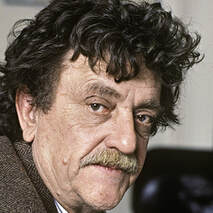|
I have delayed writing about crypto since this lockdown started due to the rapid changes undergoing our domestic and global economies. This pandemic tied together with rapid job loss and remote schooling and work has thrown the world into increasing chaos. As a previous August post of mine notates, the billionaires have made their intentions clear on the direction they intend to guide the world. As Dr. Strangelove Klaus Schwab sociopathically explains here about the world he is helping to initiate, “Nothing will ever return to the ‘broken’ sense of normalcy that prevailed [earlier]. We … will be surprised by both the rapidity and unexpected nature of these changes – as they conflate with each other, they will provoke cascading effects and unforeseen outcomes”. Whether you agree with the World Economic Forum’s leader’s vision is up to your personal morality. But from my perspective, the world he has planned is a technocratic authoritarian dystopia that will not be beneficial to the United States citizen’s values of freedom, individuality, and happiness. The ability to pursue and achieve the lifestyle of the future that is satisfactory for your needs will likely be dependent on an algorithm or artificial intelligence. When you evaluate the “Great Reset” and the overall plan, it is a hybrid mix of the dystopian novels “1984”, “Brave New World”, “Fahrenheit 451”, “Minority Report”, and “Player Piano.” Since these first four novels are stone cold classics and contain elements of our potential future technocratic dystopia, I want to focus on this last one mentioned since most people are likely unaware of it. The novel was the first for author Kurt Vonnegut, still one of my favorite writers of all time. Vonnegut is probably more well known for his novels Slaughterhouse Five, Cat’s Cradle, and The Breakfast of Champions. These novels are known for their sharp wit, dark comedy and fourth wall narrations. As Billy Pilgrim often tells himself in Slaughterhouse Five, “So it goes.” The plot of Player Piano discusses a world from two points of view. After World War III was fought, industrialists created a technologically advanced world where automation replaces middle and lower-class workers who are not given their jobs back at the end of the war due to the efficiency of the system they created. The workers that are displaced are excluded from society and are forced to work civil service jobs as their unique talents are replaced by more efficient machines. But like all novels about the dangers of technology, the elitist “managers” and “engineers” also slowly start getting replaced as the technology continues to improve and evolve. This eventually leads to a reckoning of the society that was created by these industrialists. The second plot point revolves around a foreign leader, the Shah of Bratpuhr, a spiritual leader for six million people of a small undeveloped nation who is observing this technologically advanced world as an outsider as he tours the country. This book has aged like a fine wine. As Vonnegut even acknowledged in 1983, “this novel is becoming more timely with each passing day.” What Player Piano gets right revolves around two main ideas. First, the idea that automation and artificial intelligence is going to replace a large majority of workers is a legitimate threat in our present-day world. Article, after article, after article has been warning us about this future. The technologically advanced world that was supposed to bring about personal independence, open-mindedness, and endless opportunity has quickly been exposed for the lie that it always was. Instead, we are getting technology similar to the type that Vonnegut so eloquently explains in his novel. Technology exists for the supreme efficiency that it creates for the world’s wealthy. The concern and needs of the lower and middle class are conveniently ignored. If you want to see this idea taken to a radical extreme in our present day, please watch the Netflix documentary American Factory. The documentary focuses on a Chinese company’s purchase of a failing American factory. The Chinese oligarch quickly becomes disenfranchised with his blue-collar workers and slowly begins to replace them with machines. By the end of the movie, the entire factory is almost all robotic and most of the workers have had their jobs eliminated. No documentary in our recent times has been more of a reality check than this one. Americans need to understand that this future is rapidly approaching whether we accept it or not. Second, the novel exposes another problem in our present day, our elite’s superiority complexes that have made them arrogant. The problem is that like Vonnegut’s book, once a system like this has been created, the victims of that system become endless. Just like the elimination of supposedly lower and middle-class skills that are done more efficiently by machines, it does not take too long until the engineers and managers can also be replaced by more effective automation. How long before computers can code better and faster than the best computer engineer? If you have never read Kurt Vonnegut, there is no better time to dive into this brilliant author than in our present day 21st Century dystopian lockdown world. The man was an underrated genius who has left an indelible impression in my mind through his own creativity. One of my favorite moments with Vonnegut was his cameo in the movie Back to School starring Rodney Dangerfield. Rodney hires Vonnegut to write an evaluation of a 'Kurt Vonnegut' novel which his literature professor Dr. Diane Turner (Sally Kellerman) rejects after she finds out Rodney did not write it. She also blasts the writer of his evaluation (Vonnegut) by saying, "And to tell you something else, whoever did that does not know the first thing about Kurt Vonnegut." Such a brilliant scene!
1 Comment
|
AuthorEXPERT OF SOME Archives
June 2024
|

 RSS Feed
RSS Feed